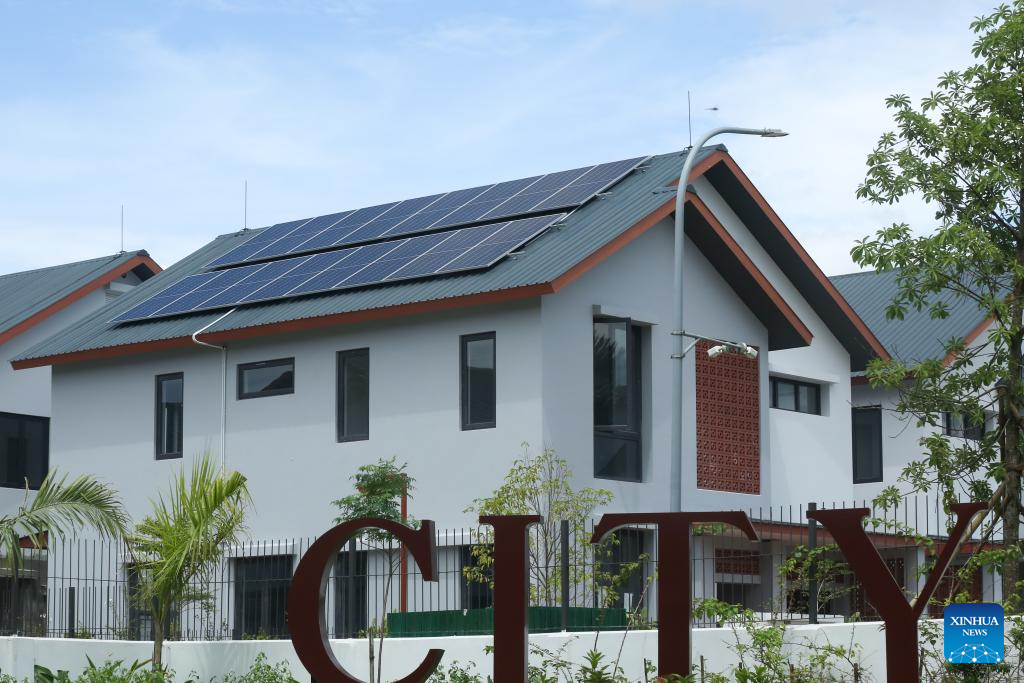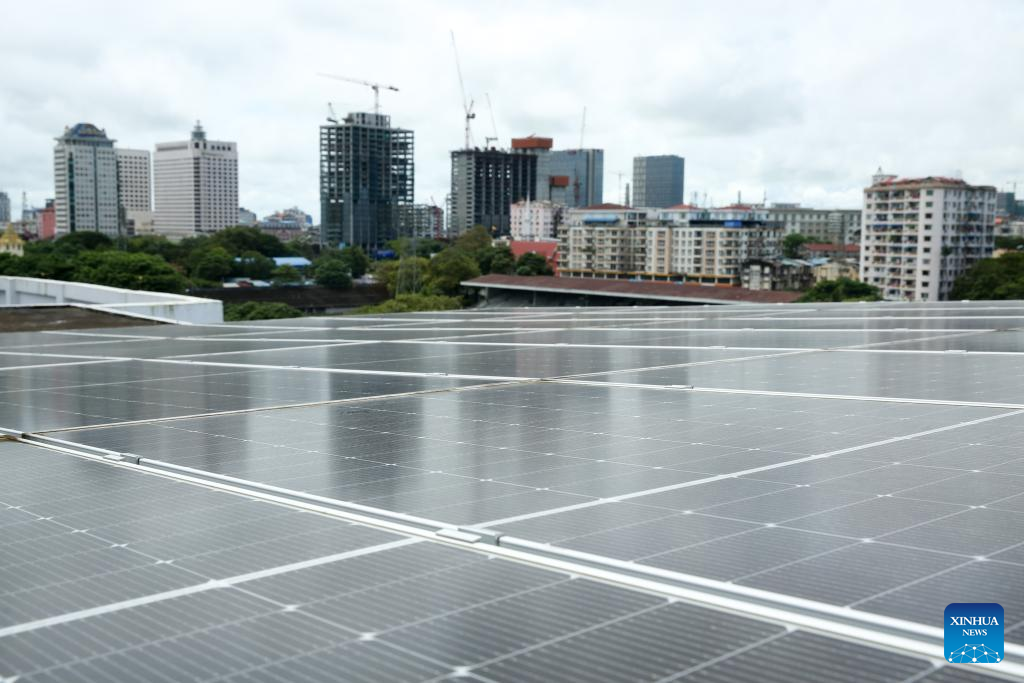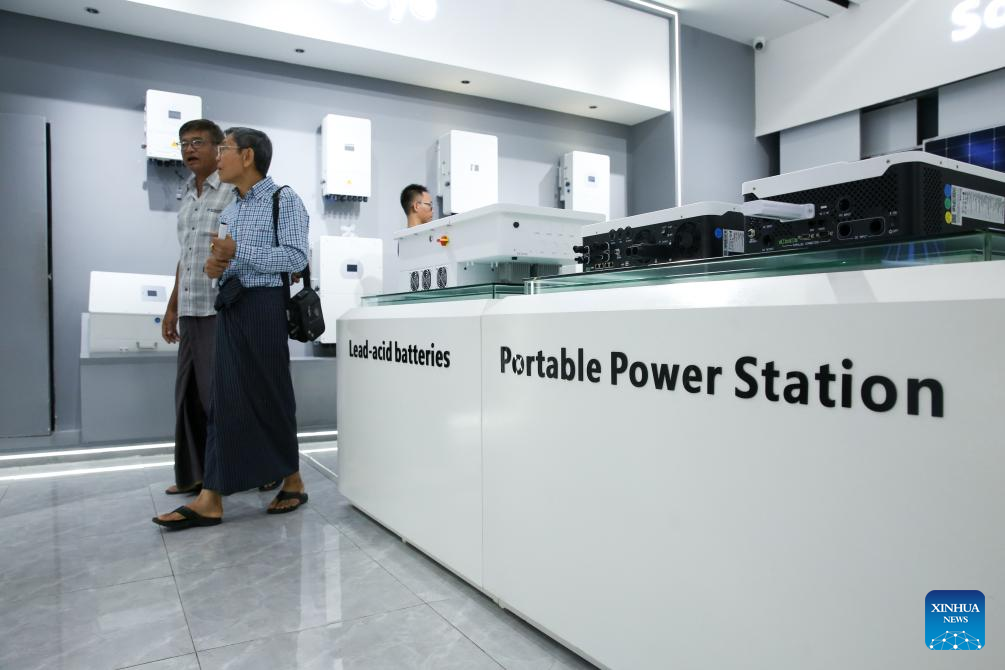
This photo taken on Oct. 4, 2024 shows solar panels installed on the roof of a house in Yangon, Myanmar. (Xinhua/Myo Kyaw Soe)
YANGON, Oct. 5 (Xinhua) -- The adoption of solar energy in Myanmar is on the rise due to increasing oil prices and electricity costs, Thi Thi Soe, deputy general manager of Sandisolar, a Myanmar-based Chinese new energy company, told Xinhua on Friday.
Moreover, solar products and related items are increasingly accessible in the market, making them an attractive option, she said.
The reason for opting for solar energy is the unstable electricity supply and rising electricity bills, said Thida Tun and Chaik Sai, who have chosen solar energy for reliability and sustainability.
Thida Tun, 66, emphasized, "I would like to urge communities to harness natural light through solar power. Instead of relying on electricity, we can utilize sunlight, which naturally exists and is abundant."
Chaik Sai, 46, expressed his preference to Chinese-made solar panels, noting their popularity in Myanmar. These panels can provide steady power and light, which helps prevent the frequent on-and-off situations that can damage electrical appliances.
"By switching to solar energy, I hope to create a more reliable and sustainable energy source for my home," he added.
Myanmar's solar market is predominantly led by Chinese companies, including Sandisolar. In 2022, Sandisolar completed 36 solar projects and that number rose to 115 in 2023, with over 200 projects planned for 2024, Thi Thi Soe said.
This growth highlights the increasing use of solar energy in the Southeast Asian country, she added.
Solar installations have been growing each year. They are more widely adopted in both urban and rural regions of Myanmar for homes, businesses and factories, she said.
In rural regions, solar systems are being implemented in rural lighting projects, and small solar devices are being utilized in areas that still lack access to electricity and face transportation challenges, she added.
Thi Thi Soe highlighted that solar energy supports businesses by reducing costs and providing steady power supply. This also helps create a quieter, more environmentally friendly atmosphere compared to using fuel-powered generators.
The expansion of solar energy projects has been supported by Lancang-Mekong Cooperation (LMC) programs and China-Myanmar cooperation programs, according to Sandisolar. ■

This photo taken on Oct. 4, 2024 shows solar panels on rooftops in Yangon, Myanmar. (Xinhua/Myo Kyaw Soe)

Customers look at solar products at a store in Yangon, Myanmar, Oct. 4, 2024. (Xinhua/Myo Kyaw Soe)
